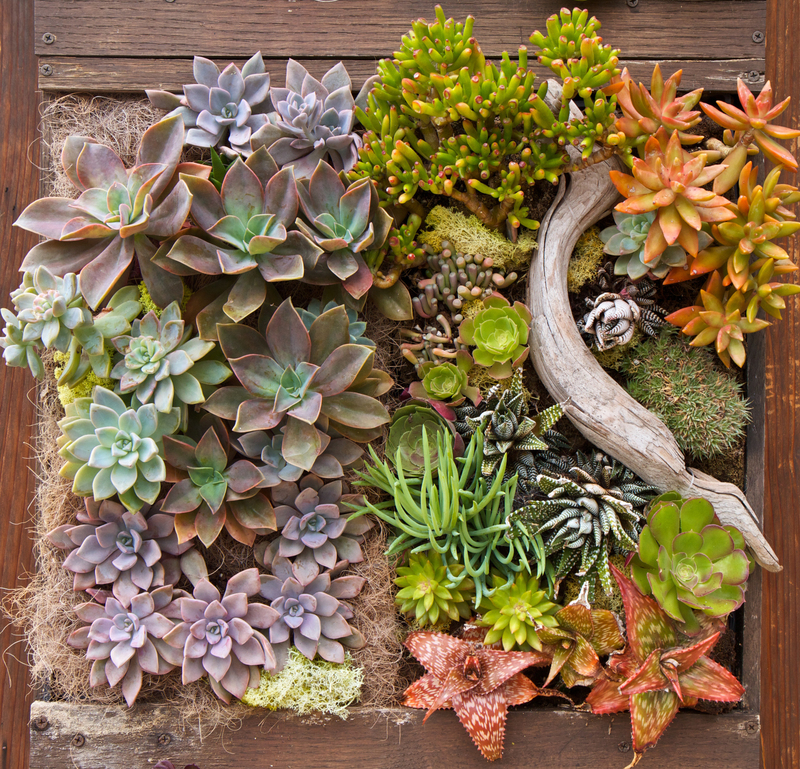A Calm and Peaceful Outdoor Space with Zen Garden Ideas
Posted on 19/08/2025
A Calm and Peaceful Outdoor Space with Zen Garden Ideas
In today's fast-paced world, having a calm and peaceful outdoor space is more than just a luxury--it's a haven for relaxation and mental clarity. One of the best ways to achieve this serenity is by designing a Zen garden. Rooted in Japanese tradition, Zen gardens serve as a sanctuary for contemplation, meditation, and a deeper connection with nature. If you're searching for Zen garden ideas or seeking to create a tranquil retreat in your backyard, this comprehensive guide will inspire and inform you every step of the way.

What is a Zen Garden?
Also known as "Japanese rock gardens," Zen gardens are minimalist landscapes composed primarily of rocks, sand, gravel, and sparse greenery. Their origins date back to medieval Japan, where Buddhist monks designed them as aids to meditation. The key principle behind a Zen garden is to evoke the essence of nature in a simple and symbolic manner, creating a visual poem that inspires calmness and peace.
- Minimalism and simplicity
- Symbolic arrangement of elements
- Harmonious balance
- Spaces for contemplation and reflection
The Benefits of a Zen Garden in Your Outdoor Space
- Stress Reduction: A tranquil and peaceful outdoor space encourages relaxation and mental well-being.
- Low Maintenance: Zen gardens require less upkeep compared to traditional gardens, letting you focus on tranquility rather than chores.
- Year-Round Beauty: Evergreen plants and hardscapes make for a visually appealing garden every season.
- Meditative Value: Promotes mindfulness, creativity, and focus through its tranquil design and structured layout.
- Customizable: Zen gardens suit both large backyards and small patios, making them versatile and accessible for many homeowners.
Essential Elements for a Zen Garden
To create a calm and peaceful outdoor space inspired by Zen traditions, certain elements are fundamental. Each component plays a symbolic role, contributing to the overall harmony of the garden.
1. Rocks and Stones
Rocks represent mountains or islands, forming the skeleton of the Zen landscape. Carefully placed larger stones often become focal points, while smaller ones add support and nuance. Arranging stones asymmetrically creates visual interest and highlights the natural beauty of each rock.
2. Sand and Gravel
Sand or gravel is used to symbolize water or clouds. Raking patterns into these materials--such as ripples or waves--promotes mindfulness and adds texture. The raked 'pond' around rock 'islands' is an iconic feature of many Zen gardens.
3. Water Features
While many traditional Zen gardens omit water, incorporating a small pond, stream, or fountain can enhance the sense of serenity and offer gentle sounds that reinforce calm. If space or budget permits, a Japanese bamboo fountain--known as a "shishi-odoshi"--adds movement and a soothing, rhythmic sound.
4. Greenery and Plants
Unlike lush Western gardens, Zen gardens favor sparse plantings with subtle tones and textures. Moss, ferns, evergreen shrubs, and low-growing groundcovers are ideal. Carefully pruned trees--such as Japanese maple or black pine--provide shade and structure.
5. Bridges, Pathways, and Lanterns
- Stepping stones or gravel paths guide the flow of movement and invite exploration.
- Wooden or stone bridges symbolize journey and connection.
- Lanterns (commonly stone) offer a timeless, meditative glow in the evening.
Designing Your Own Zen Garden
1. Choose Your Location
You can design a Zen-inspired space in virtually any part of your garden. Whether it's a dedicated backyard retreat, a quiet corner, or even a balcony or rooftop, size is less important than thoughtful design.
- For expansive yards: Consider a more elaborate design with winding paths and larger rocks.
- For compact spaces: A tabletop Zen garden or a small gravel bed surrounded by a privacy fence can be equally effective.
2. Plan the Layout
Outline your garden design on paper before starting. Balance is the goal, but it should feel natural, not forced. Use odd groupings (three or five stones), favor open space, and position features so that the eye travels smoothly through the landscape.
3. Select and Arrange Materials
- Use pebbles, river rocks, and different grades of gravel for texture variation.
- Wood and bamboo can be used for fences, paths, or decorative screens.
- Choose plants that thrive in your region and require little maintenance.
4. Incorporate Meaningful Features
Personalize your garden with features like a meditation bench, wind chimes, or a bonsai display. Each element should be chosen with intention, contributing to an overall sense of peace and order.
Inspirational Zen Garden Ideas for a Serene Outdoor Oasis
1. Traditional Japanese Zen Garden
Create a classic look by combining white gravel raked into ripple patterns, several large sculptured rocks, and a small area of moss or ferns. Adorn with a stone lantern and a bamboo water spout for added authenticity.
2. Modern Minimalist Zen Garden
Embrace simplicity with clean lines and geometric shapes. Use a monochrome color palette: charcoal gravel, sleek concrete stepping stones, and low, sculptural plants like Japanese black pine or dwarf mondo grass.
3. Courtyard Zen Retreat
Transform a small courtyard with a compact Zen garden. Enclose it with bamboo fencing for privacy, place a central stone arrangement, and use potted evergreens to infuse life into the space. A small bench provides an invitation to pause and meditate.
4. Zen Garden with Water Feature
Incorporate a koi pond, bubbling fountain, or trickling bamboo water basin. The sound of water deepens tranquility, helping to create a calm and peaceful outdoor space.
5. Moss and Shade Garden
For shaded yards, plant a variety of mosses and shade-loving groundcovers. Arrange flat rocks to create small islands in a 'sea' of green. Accentuate with a stone lantern for a magical, woodland Zen feel.
6. Zen Pathway Garden
Design a meandering pathway with stepping stones, flanked by sand or gravel. Intermittent boulders and carefully spaced hako-zashi bamboo stakes guide the eye along a visual journey, leading to a restful nook or meditation pavilion.
Zen Garden Maintenance Tips
One of the appeals of a Zen garden is the low maintenance requirement. With thoughtful design, you can enjoy lasting peace with minimal effort:
- Rake gravel or sand regularly to maintain patterns and remove debris.
- Trim shrubs and trees occasionally to preserve their form.
- Clear fallen leaves quickly, especially in autumn.
- Monitor moss and groundcovers for signs of drought or disease.
- Clean and repair lanterns, benches, and water features as needed.
Combining Zen Garden Ideas with Other Outdoor Spaces
There's no rule that says your outdoor Zen garden must stand alone. Many homeowners successfully blend Zen elements with other garden styles for a unique, harmonious landscape. Try combining Zen features with:
- Japanese tea gardens--introduce a small tea house or pathway for tea ceremonies.
- Modern landscapes--integrate minimalist sculptures or outdoor furniture.
- Edible gardens--plant herbs and vegetables in neat, raised beds bordered by raked gravel or stones.
Create a Tranquil Outdoor Sanctuary Today
Designing a calm and peaceful outdoor space with Zen garden ideas is a rewarding journey that leads to greater serenity in your daily life. Whether your ambition is a sprawling Japanese rock garden or a compact meditation corner, the principles of Zen--simplicity, balance, and harmony--can be applied to any environment.
By thoughtfully incorporating rocks, sand, water, and delicate greenery, you'll foster a space for mindfulness and renewal. Remember that a Zen garden is more than just beautiful landscaping; it is a living artwork, a spiritual refuge, and an invitation to slow down and appreciate the present moment.
Start your journey today: Gather inspiration, pick a spot, plan your layout, and let your creativity flow. Your Zen garden will soon become your favorite destination for peace, reflection, and calm--right in your own backyard.

Frequently Asked Questions about Zen Gardens
1. Can I create a Zen garden in a small space?
Absolutely. Even a balcony or small patio can become a serene Zen retreat with the right arrangement of rocks, sand or gravel, and a few simple plants. Consider a tabletop Zen garden if space is extremely limited.
2. Do Zen gardens require special plants?
No, but it's best to use plants that are evergreen, low-maintenance, and native or well-adapted to your climate. Moss, ferns, and small evergreens are especially popular.
3. How often do I need to maintain a Zen garden?
Minimal maintenance is needed--mainly raking sand or gravel, pruning any greenery, and keeping the area clean of debris.
4. What is the meaning behind the different elements?
Every component of a Zen garden is symbolic: rocks often represent mountains or islands, sand and gravel depict water, and sparse plants evoke the resilience and beauty of nature.
Conclusion: Embrace the Tranquility of Zen Garden Design
Creating a calm and peaceful outdoor space with Zen garden ideas enriches your home with natural beauty, serenity, and a touch of timeless elegance. Whether you embrace age-old Japanese traditions or personalize your designs with modern twists, a Zen garden offers a practical and aesthetic answer to the need for outdoor tranquility. Explore your options, trust your instincts, and let your Zen oasis bloom!



